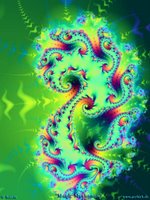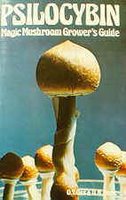Magic mushrooms. - A tool to study the neurobiology of human consciousness?
 Back in the 60’s when Hendrix was setting fire to his amplifiers, people were really happy. Not just because he played some kick-ass rock and roll but they also had drugs, lots of it. Psychedelic drugs like mescaline (from cacti), LSD (synthetically produced) and psilocybin (from mushrooms) were freely used. Then the government had to clamp them down, they just can’t stand any part of the society have some fun. (Actually these happy unemployed music lovers with drug induced world view started turning in large numbers to anti-war rallies). Unfortunately this also meant an end to research on these substances which were regarded as a promising candidate for treating chronic pain and depression in terminally ill patients.
Back in the 60’s when Hendrix was setting fire to his amplifiers, people were really happy. Not just because he played some kick-ass rock and roll but they also had drugs, lots of it. Psychedelic drugs like mescaline (from cacti), LSD (synthetically produced) and psilocybin (from mushrooms) were freely used. Then the government had to clamp them down, they just can’t stand any part of the society have some fun. (Actually these happy unemployed music lovers with drug induced world view started turning in large numbers to anti-war rallies). Unfortunately this also meant an end to research on these substances which were regarded as a promising candidate for treating chronic pain and depression in terminally ill patients.Quick jump to the beginning of the next millennium, when boy-bands are tearing up the scene, sending 15 year old girls into a crying frenzy every time they are seen in public and at the same time propelling sales of atrocious giant sized posters with their baby faces on them. People are sad, not because they don’t have good drugs (some genius boiled powder cocaine with baking soda to give the world crack) but the music truly sucks. But there is hope for the people who really need new drugs. No, not the aging ex-rock stars, (even David Bowie has gone clean and is the CEO of his own internet company), but the chronically ill and depressed thanks to a renewed interest in psychedelic drugs by the scientists.
In a double-blinded study, the effects on psilocybin administration was studied by Roland Griffiths of Johns Hopkins University and his colleagues on several volunteers and published in Psychopharmacology. The subjects reported their experience after taking the drug(below).

Twenty-two out of the 36 volunteers described a so-called mystical experience, or one that included feelings of unity with all things, transcendence of time and space as well as deep and abiding joy
Two months later 67 percent of the volunteers rated the psilocybin experience as among the most meaningful of their lives, comparing it to the birth of a first child or the death of a parent.
The long term effects and mechanism of the drug is not known completely. According to Charles Schuster, a neuroscientist at Wayne State University, this drug should be further investigated as to how they can be used to treat diseases like "the ennui and anguish of impending death" as well as "alcoholism and other forms of drug addiction."
Pheww… a long journey for the simple magic mushrooms.

0 Comments:
Post a Comment
<< Home